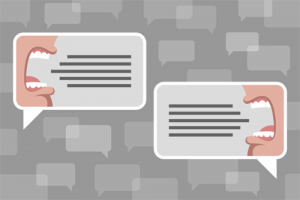Internet Mediation and Social Media Mediation
As the Internet and social media experience of humans grows and evolves, we will see some predictable and many unpredictable conflicts arise in various contexts, and an increased need for internet mediation and solution media mediation. Some, but not all of these conflicts concern, but are not limited to the following conflict issues.
Defamation & 1st Amendment. Because the Internet has the ability to quickly disseminate information, defamation is so much more explosive and irretractable. Often, conflict that involves improper used of the Internet is ongoing, and therefore, a good mediator can enter the dynamic, engage in crisis mode solution, and long-term problem-solving afterward. At the very least, mediation may reduce any further harm.
Stalking. The Internet enables stalkers to invade a person’s social space, as it were, following the victim in various online domains, which can cause profound psychological, social, legal, and financial harm. Mediation can sometimes resolve these issues, and at least develop a problem-solving plan for the future, whether or not the situation leads to criminal or civil actions.
Use of social media against employees. Sometimes, employers invade the social media space of their employees to manipulate them, fire them, or engage in more nefarious behavior. Obviously, there are highly developed employment laws, but we have seen mediation solve conflicts before they get out of hand and require court actions.

Unfair advantage in divorce cases or end of relationships. Sometimes, a resentful ex-spouse or relationship partner can misuse social media or the Internet to harm the interests of their former partner. By divulging private secrets, or misstating facts about a person’s life, there can be employment, financial, legal, and social harms that can emerge. Mediation can short circuit these potential harms in an efficient way so that the parties can create potential resolution.
These are just some of the conflict issues arising from this new human dimension. High-quality mediation can solve these problems before they become legal, or they can transform legal problems into managed solutions, saving money, time, and stress for everyone.
Contact Boileau Conflict Solutions today for more information.
Frequently Asked Questions / FAQS
What is Internet and Social Media mediation?
Internet and Social Media mediation can be used when two or more parties have disagreements that involve Internet use or social media issues. Instead, of choosing protracted litigation the parties choose cooperative mediation to resolve their disagreement.
What are the dynamics of mediation?
The conflict partners commit to a win-win, cooperative process in which each party feels heard, and that their stakeholder interest is respected.
Are attorneys involved?
Sometimes, parties will also hire consulting attorneys, who step back during the mediation process. In many cases, no representing or litigating attorneys are involved, which creates a less adversarial mediation process.
Does the mediation team do any research?
Internet and social media mediation can involve complex legal, social, and psychological issues, so good mediation involves extensive research and preparation.
 How do the meetings take place if stakeholders live in different cities, states, or countries?
How do the meetings take place if stakeholders live in different cities, states, or countries?
Mediation meetings can occur through online, Internet services such as Zoom, Skype, Go to Meeting for convenience.
Does Internet and social media mediation address legal issues?
Yes. Internet and social media mediation take the law into account, as well as the parties’ needs and preferences. The law is addressed in an amicable way so the parties can decide instead of a judge.
Is Internet and social media mediation legally binding?
The mediation itself is not legally binding until the parties have a signed, written contract.
What happens if mediation does not work in Internet and social media disagreements?
The parties always have the option to hire legal counsel if they cannot work out their conflict in mediation.
Does mediation work?
If two or more parties are committed to working out a resolution; if they understand and appreciate the other party’s interests; and if they are willing to seek new creative options they might not have considered before, mediation is often the best type of conflict resolution design.
Is mediation expensive?
Mediation is often much less expensive than litigation because there are no lawyers and judge involved. There are no court hearings, no court calendar, which can lead to a much more streamlined, efficient process.
